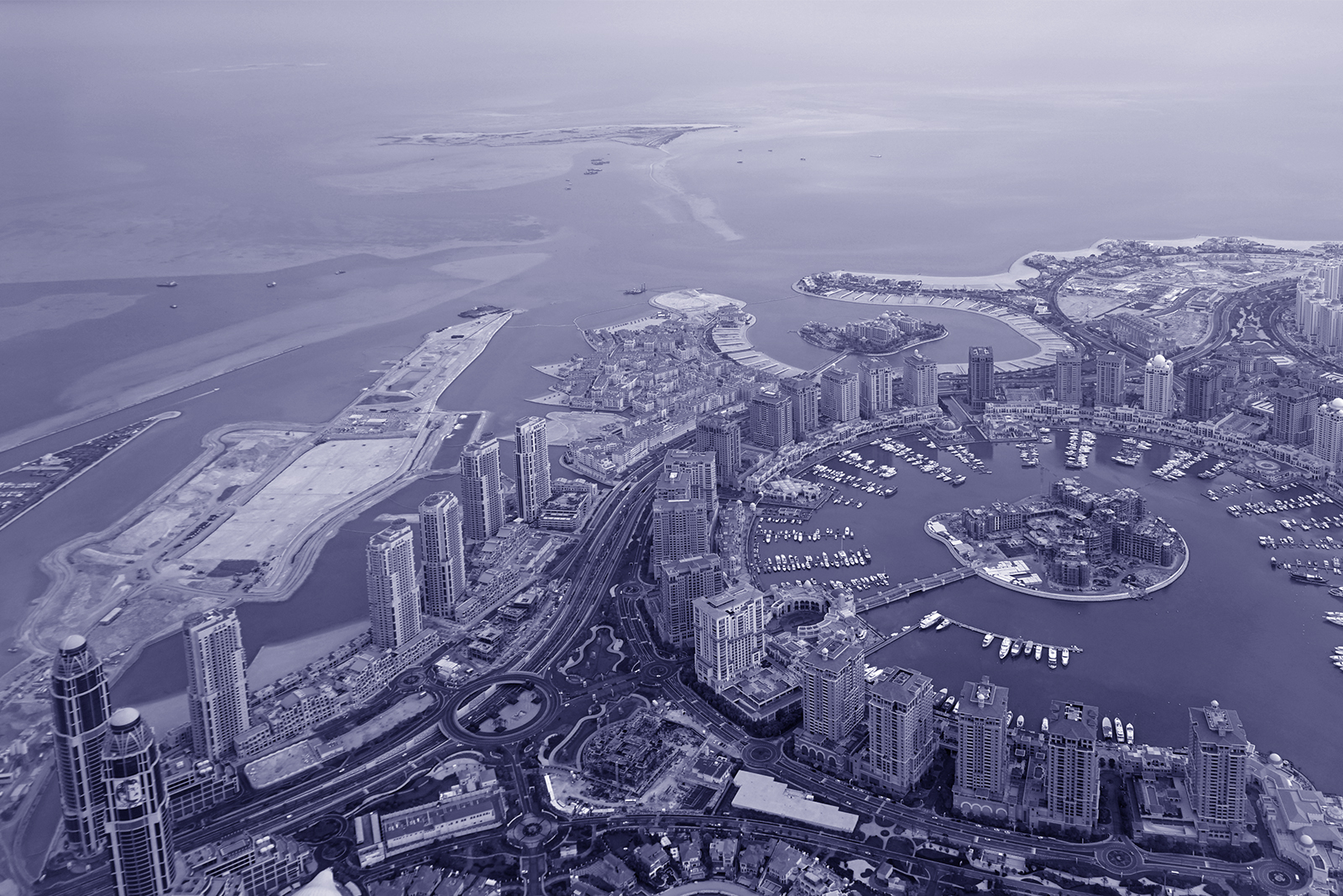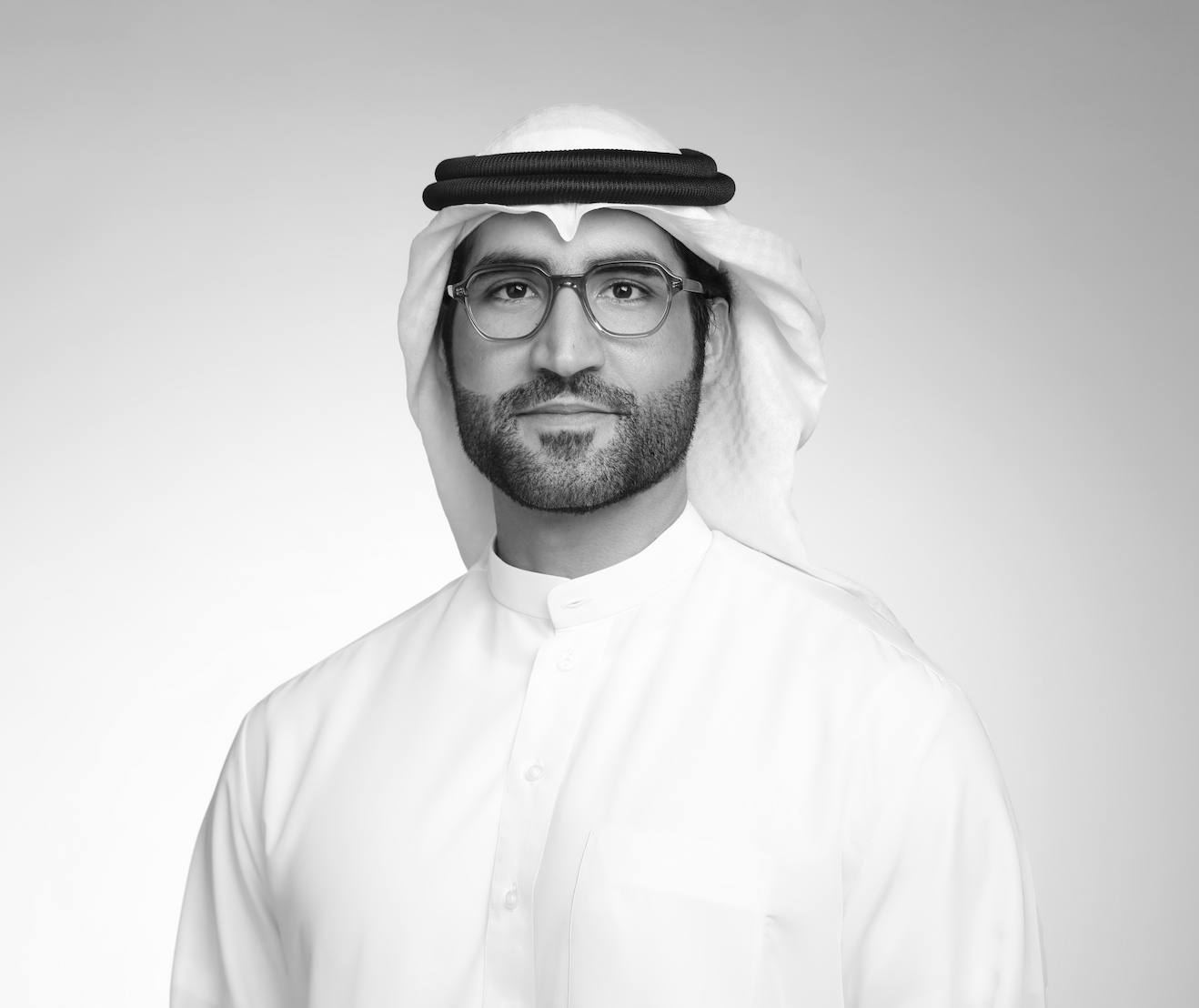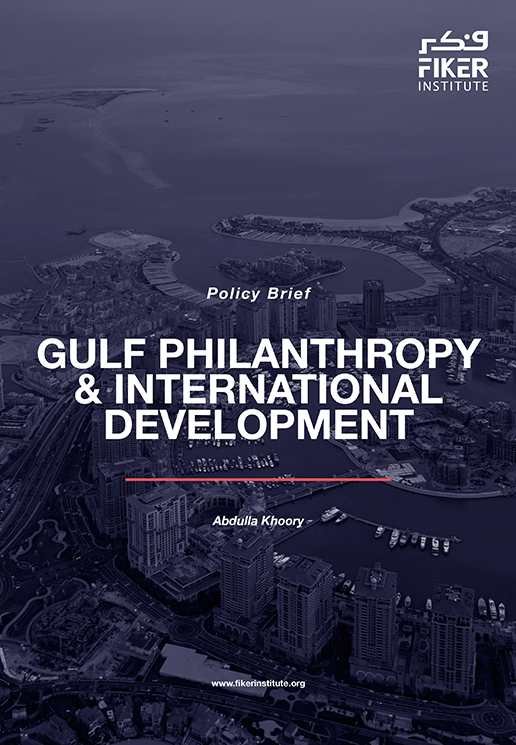
Gulf Philanthropy & International Development
The global development landscape is undergoing a profound shift, marked by the retreat of traditional Western aid and the emergence of new philanthropic actors. Among these, Gulf Cooperation Council (GCC) countries are becoming increasingly influential, leveraging their financial capacity and geopolitical capital to reshape development and aid paradigms. Once peripheral to mainstream global development discourse, GCC nations are now positioned to assert leadership through philanthropic models rooted in local ethics and South–South solidarity.
The distinction between philanthropy and foreign aid is becoming increasingly blurred in the GCC context. While philanthropy is traditionally defined as voluntary, non-state giving for the public good, a growing number of GCC foundations (both private and state-affiliated) are engaging in transnational activities that closely resemble Official Development Assistance (ODA) or foreign aid. When sovereign-backed entities such as Saudi Arabia’s King Salman Humanitarian Aid and Relief Center or the United Arab Emirates’ (UAE) Mohammed bin Rashid Al Maktoum Global Initiatives operate across borders, they often serve as instruments of soft power. The emerging term ‘philanthro-diplomacy’ reflects this hybrid role.
As Western aid declines and new global powers emerge, a critical question arises: how can GCC philanthropy shape the next chapter of global development? With increasing Gulf wealth, a deep-rooted tradition of Islamic giving, and strategic aspirations for soft power, the Gulf philanthropic actors are uniquely positioned to offer a new values-driven alternative.
RETHINKING THE WESTERN DEVELOPMENT PARADIGM
Western development assistance is in a period of contraction. On January 20, 2025, President Donald Trump issued an executive order pausing new US foreign aid disbursements for a 90 day review which ultimately led to the dissolution of the United States Agency for International Development’s (USAID) and widespread program cuts, ultimately affecting more than 80% of active initiatives. Legal challenges to the aid freeze led to court-ordered exceptions, resulting in a phased reinstatement of some programs, particularly in health and humanitarian sectors, while others remained suspended or defunded, with all future foreign aid being administered by the State Department.
Beyond the United States, the reduction of development aid spans major Western governments. The United Kingdom has announced plans to reduce its aid budget from 0.5% of gross national income (GNI) to 0.3% by 2027, representing roughly a 40% reduction and translating to approximately £6 billion less in aid annually; the lowest in cash terms since 2012. Meanwhile, Germany’s ODA fell by over 10% in 2024 versus 2023, with further cuts in 2025 reducing humanitarian emergency aid by 53%. France, too, has seen significant budget cuts since 2024. The Organisation for Economic Co-operation and Development (OECD) projects that in 2025, ODA will decline by between 9% and 17% across the board, marking the first time in nearly 30 years that France, Germany, the UK, and the US have all simultaneously cut ODA in consecutive years.
Additionally, in recent years, Western aid institutions have faced increasing scrutiny over concerns related to efficiency, donor-driven agendas, and perceived neo-colonial dynamics.1 While such aid has contributed meaningfully to humanitarian and development goals, critics, especially in the Global South, argue that political conditionalities and the emphasis on liberal democratic norms can appear externally imposed or misaligned with local governance priorities and cultural contexts.2 This seeming erosion of trust between Western aid institutions and recipient nations in the Global South presents a strategic opportunity for GCC countries to offer a more contextually resonant model of development cooperation.
In contrast to the formalized multilateral structures typical of Western aid, such as those administered by the World Bank or UN agencies, GCC countries overwhelmingly favor bilateral aid routes: only 1–6% of their assistance passes through multilateral organizations. This model arguably enables greater flexibility, faster deployment, and more culturally resonant engagement with recipient states. It also facilitates stronger diplomatic ties and extends regional influence, with aid strategies often aligned with broader geopolitical considerations. While conditionalities may still be present, Gulf based bilateral aid assistance can be perceived by partners in the Global South as more responsive to local priorities and reflective of shared cultural or regional affinities. Doing so broadens the development agenda beyond Western-led ideologies.
GCC nations are becoming increasingly prominent players in global development funding and have significantly expanded their development assistance portfolios. From 2019 to 2022 the UAE, Saudi Arabia, Qatar, and Kuwait collectively contributed USD 28.9 billion in ODA, with ODA-to-GNI ratios surpassing those of the US and the European Union.3 From 2010 to 2021, GCC states accounted for an average of 7.5% of global humanitarian funding, peaking at over 16% in 2018.4 These figures highlight not only increasing financial commitments but a prominent shift in geopolitical positioning.
GCC foundations have also demonstrated alignment with global development priorities, with much of their philanthropic funding directed towards the education, health, and humanitarian sectors, areas traditionally championed by donors such as USAID. These efforts are often driven by royal and government-affiliated philanthropic institutions, such as the Mohammed bin Rashid Al Maktoum Global Initiatives, the Qatar Foundation, the King Salman Humanitarian Aid and Relief Center, and Alwaleed Philanthropies. A significant proportion of philanthropic initiatives in the Gulf are implemented in close coordination with government bodies, reflecting a high degree of policy alignment and the presence of state-influenced philanthropic structures.
In defining the next era of global development, the GCC approach to philanthropy can be distinct: one that emphasizes cultural and religious proximity, as well as a regional sense of responsibility. In doing so, the Gulf countries can strengthen partnerships and reinforce the region’s leadership role in shaping a more values-oriented development narrative, ultimately serving as a vehicle of soft power. Moreover, the strategic use of research, data, and intellectual leadership, or “knowledge philanthropism”5, offers a powerful avenue for the GCC to influence global norms while remaining true to its values.
GCC countries can redefine the architecture of global development by advancing approaches that are partnership based, locally anchored rather than externally imposed, and deeply attuned to the shared aspirations of the Global South.
THE ARCHITECTURE OF GCC PHILANTHROPY: ISLAMIC GIVING AND THE FOUNDATIONS OF A POSTCOLONIAL DEVELOPMENT MODEL
Islamic social finance is anchored in instruments such as zakat (obligatory almsgiving), sadaqah (voluntary charity), and waqf (charitable endowments), and is grounded in an ethical-religious framework where economic justice and redistribution are emphasized.6 These mechanisms, historically used to support education, health, and social welfare, reflect a moral duty and religious obligation aimed at promoting social justice and equitable wealth allocation.
At the core of Islamic social finance is intention (niyyah): the ultimate goal is to purify one’s wealth and soul while creating a direct and immediate impact on society. This is particularly embodied in sadaqah jariyah; ongoing acts of charity such as building wells, planting trees, or spreading knowledge, the good deeds of which long endure after the giver’s death. This value system seeks spiritual rewards and is grounded in Islamic principles such as dignity (karama), collective responsibility (amaanah), social justice (‘adl), and mercy (rahma). It reframes recipients not as passive beneficiaries but as entitled stakeholders in a relational and spiritual economy, underpinned by principles of divine accountability rather than personal gratification or discretionary generosity. By integrating Islamic social finance principles with culturally aligned aid delivery, GCC states can shape a development model that aspires to reflect Islamic values, while navigating the unique socio-political realities of the Gulf states.
In comparison, Western aid and philanthropic models, whether governmental, foundation-based, or individual, are largely shaped by secular governance frameworks and value systems. In terms of foreign aid, governmental institutions typically pursue objectives like systemic reform, policy influence, humanitarian relief, or the promotion of liberal democratic norms.7
These programs are designed and implemented through professionalized outcomes-driven frameworks, emphasizing strategic planning, accountability, and measurable impact. Private philanthropic institutions, including major foundations like the Gates Foundation or Ford Foundation, similarly adopt data-informed and strategic approaches to social change. Their giving often targets legacy-building initiatives, institutional capacity development, or global advocacy campaigns aligned with thematic priorities (e.g., education, health, climate). At the individual level, donors may be driven by a combination of personal values, social responsibility, or reputational goals. While faith-based giving may play a meaningful part of the philanthropic landscape in the West, religious obligation is generally not embedded in the formal architecture of either governmental aid or mainstream private philanthropy.
Rather than presenting these aid models as oppositional, both offer valuable insights. GCC actors are uniquely positioned to combine their strengths by merging ethical principles of Islamic giving with the analytical rigor and evidence-based methodologies of Western philanthropy. This convergence opens the possibility for a hybrid model of a values-driven, impact-oriented development practice.
This represents an opportunity for the GCC to reframe the architecture of global development and invites a radical rethinking of aid narratives. When framed as a form of South–South cooperation rather than transactional aid, GCC giving becomes a vehicle for regional resilience and solidarity. The Gulf can contribute to challenging the dominant templates that shape what issues get funded, who sets the agenda, and what criteria or frameworks are used to define ‘progress’.
STRENGTHENING THE GCC’S THIRD SECTOR: FROM INFORMAL GIVING TO STRATEGIC, INSTITUTIONALIZED IMPACT
As GCC countries expand their role in global development, there is a parallel opportunity to strengthen and mature their domestic philanthropic ecosystems. While the region has made important progress, the philanthropic landscape remains in a formative stage, characterized by regulatory complexity, limited institutional infrastructure, and a lack of incentives for private sector engagement. Additionally, the GCC’s third sector faces a talent shortage that limits innovation in philanthropic practices.
Many nonprofit organizations continue to navigate operational challenges, including fragmented legal frameworks and a lack of dedicated mechanisms to enable long-term growth. Strategic coordination is further constrained by the absence of centralized data systems, common performance metrics, and transparent platforms to guide giving. As a result, philanthropy often defaults to informal channels such as zakat and personal giving. These approaches, while deeply embedded in cultural and religious tradition, sometimes lack integration with national planning or measurable strategic long-term outcomes.
Yet the untapped potential is considerable. Estimates place the region’s total philanthropic capital between USD 52 billion and USD 258 billion, where the lower range is based on a conservative application of the 2.5% zakat obligation to the GCC’s combined GDP of USD 2.1 trillion. These figures likely understate the true scale, given the prevalence of undocumented giving among high-net-worth individuals and family enterprises. Notably, family businesses, which in the UAE comprise 90% of the private sector, remain largely unstructured in their philanthropic activities.
Shifting conditions present a timely opportunity for reform. The introduction of corporate taxation, the emergence of Environment, Social and Governance (ESG) norms, and growing interest in social investment provide GCC governments with a window to incentivize structured giving through tax benefits, regulatory modernization, and public–private partnerships.
Unlocking this potential would position the nonprofit sector as a strategic contributor to national development and GDP. Globally, civil society organizations play key roles in job creation, service delivery, and civic engagement. A centralized ‘National Center for Nonprofits’ or a GCC-wide coordination platform could enable more efficient deployment of philanthropic capital, catalyze innovation, and scale high-impact initiatives. Framing philanthropy as ‘social R&D’ would further legitimize its role as a risk-taking arm of public problem-solving, testing solutions that governments may be slower or less equipped to implement.
POLICY RECOMMENDATIONS
A resilient philanthropic ecosystem also depends on improved transparency and data accessibility. To enable GCC philanthropy to play a transformative role in global development, particularly within a post-Western paradigm, GCC countries can implement comprehensive reforms across regulatory, institutional, and strategic dimensions.
1. Create a public registry of nonprofit organizations in the Gulf & institution alize accountability
Establishing a unified digital registry at national levels of accredited nonprofit organizations (whether government affiliated or private) and conducting evidence-based research on sector performance would strengthen oversight and reduce duplication. Enforcing public disclosure of nonprofit expenditures, overheads, and monitoring and evaluation outcomes would help institutionalize accountability.
2. Integrate the third sector in national development plans
Recognizing the third sector’s economic and social value by integrating it into national development plans would better acknowledge its contribution to GDP. Saudi Arabia, for instance, has ambitions to grow its third sector to 5% of GDP by 2030.
3. Incentivize private sector giving
Creating targeted incentives, such as tax benefits for corporate donors and clear partnership frameworks between government and philanthropic actors, would encourage deeper private sector engagement.
4. Strengthen cooperation with Global South partners
Enabling philanthropists to address structural challenges such as education, public health, and youth employment through co-investment mechanisms with Global South partners, including the Islamic Development Bank and regional philanthropic networks, would further embed GCC giving within broader South–South cooperation frameworks.
5. Foster an environment for nonprofit growth
Easing existing procedural requirements, such as complex registration processes, limitations on fundraising, or the need for high-level authorizations, could help foster a more enabling environment for nonprofit growth, while maintaining necessary oversight.
6. Invest in local talent in the philanthropy sector
Building dedicated leadership pipelines through fellowships, academic programs, and university research hubs can help professionalize the sector and cultivate a new generation of philanthropic leaders.
7. Support regional social entrepreneurship
Supporting social entrepreneurs as a core pillar of philanthropy, particularly in countries such as Egypt, Tunisia, and Morocco, holds promise for civic innovation and inclusive job creation.
8. Integrate innovative financing tools
Including innovative financing tools such as blended finance and impact investing can complement traditional giving models, while inclusive digital tools can broaden donor participation and community engagement.
Together, these measures can help position GCC philanthropy not only as a credible and strategic contributor to global development, but as a values-driven leader that offers a regionally grounded, globally relevant alternative to legacy aid frameworks.
CONCLUSION
GCC philanthropy is undergoing a critical transformation. Presenting an opportunity to anchor aid in local ethical traditions, fueled by growing fiscal and strategic capacity, it is well-positioned to influence the future of global development. This transition coin cides with a broader realignment of global power, as Western-led aid models recede, and the Global South asserts greater agency.
Through this approach, GCC countries can forge a new development paradigm rooted in justice, mutuality, and cultural authenticity. Realizing this vision requires investment in institutions, data infrastructure, human capital, and regulatory reform.
The goal is not to replicate or displace the West, but to build a more plural, grounded, and equitable development architecture, one shaped by local contexts and global solidarity. If guided by vision and transparency, GCC philanthropy can help define this new chapter: fusing context-driven traditions with strategy, and regional relevance with global leadership.
The statements made and views expressed are solely the responsibility of the author, and do not represent Fiker Institute. To access the endnotes, download the PDF.

